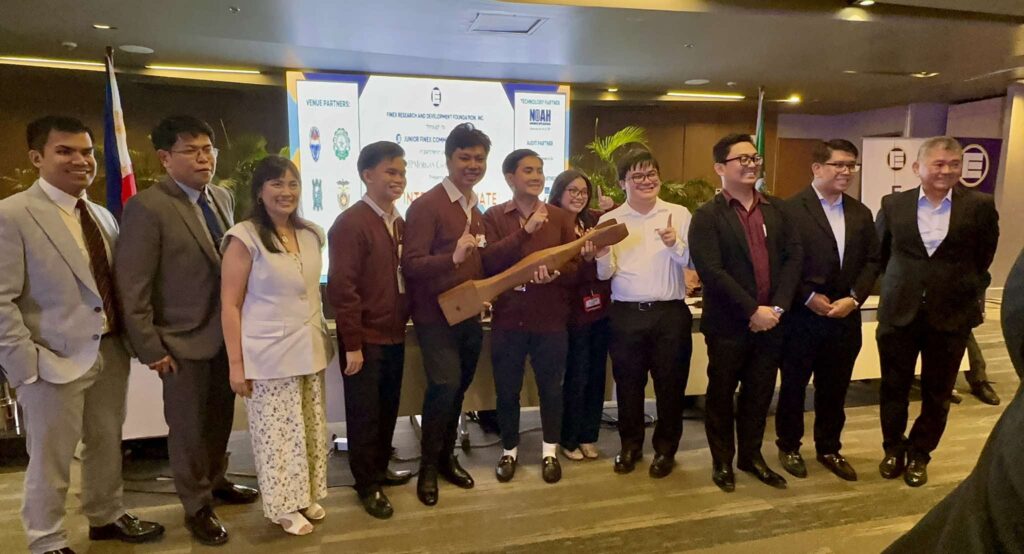EJ Qua Hiansen l November 28, 2024 l Manila Bulletin

The FINEX Foundation, with our partners JPMorgan & Chase Co., held its 24th Inter-Collegiate Finance Competition (ICFC) on November 22. A record 97 schools competed across six sites nationwide with the team from the University of the Philippines Diliman narrowly defeating the defending champion, De La Salle University.
The Junior FINEX Committee organizes the ICFC annually as part of our commitment to raising the standards for finance students. We have noticed significant improvements, with schools consistently performing better each year. Under the leadership of our ICFC Chairman, John Balce, we have partnered with like-minded organizations such as the CFA Society of the Philippines, IMA Philippines, and PwC Philippines. This collaboration helps us tailor the competition to better prepare students for their future careers, including a greater emphasis on ethics. Additionally, the pandemic prompted us to digitize the competition in collaboration with NOAH Business Applications, enabling us to conduct the event simultaneously across the nation.
The results have been good, with this year’s competition being among the most exciting. Observing the competition, it is clear how diligent the students are in preparing for it, and the tension is evident as answers are revealed. It is always fun to see the teams celebrating when they get the right answer to challenging questions. In fact, we had a very exciting conclusion to this year’s conclusion as three schools contested the answer to the final question.
Our knowledge partners and our Board of Judges, all very experienced practitioners in the field of finance, prepare and vet the questions ahead of the competition. As I witnessed the schools contesting the question, I thought to myself that if the students can successfully convince the Board of Judges, they deserve to win. Lo and behold, they were able to demonstrate that there were multiple correct answers depending on the assumptions used.
To me, this demonstrated the confidence that students have in their ability. They prepared for the competition and believed that they had the correct answer. It is a positive sign for future employers that these students are willing and able to articulately explain why they feel that they were right. This also highlighted that in analyzing investment decisions, there is not always a correct answer but that a lot of the time, it is reliant on the assumptions used.
We see this in practice in the real world as we evaluate potential transactions. The actual act of financial modeling is a challenge, but what drives investment decisions is the understanding of the transaction and its potential implications for the company. The assumptions used can drastically swing valuations and, subsequently, the decision. This underscores the importance of conducting thorough due diligence to verify assumptions made.
However, these are only assumptions, and as practice has shown us, things change upon execution as we live in increasingly volatile economic times. Our future financial leaders must possess a strong moral and ethical foundation alongside the skills necessary to adapt to changing conditions. I commend our schools for strengthening the quality of finance education in the country and hope that ICFC continues to play a role in uplifting our standards.
*** EJ Qua Hiansen is the Senior Vice President, CFO of PHINMA Corp., and Chair of the Junior FINEX Committee of the FINEX Research & Development Foundation. The views and opinions expressed above are those of the author and do not necessarily represent the views of FINEX.

